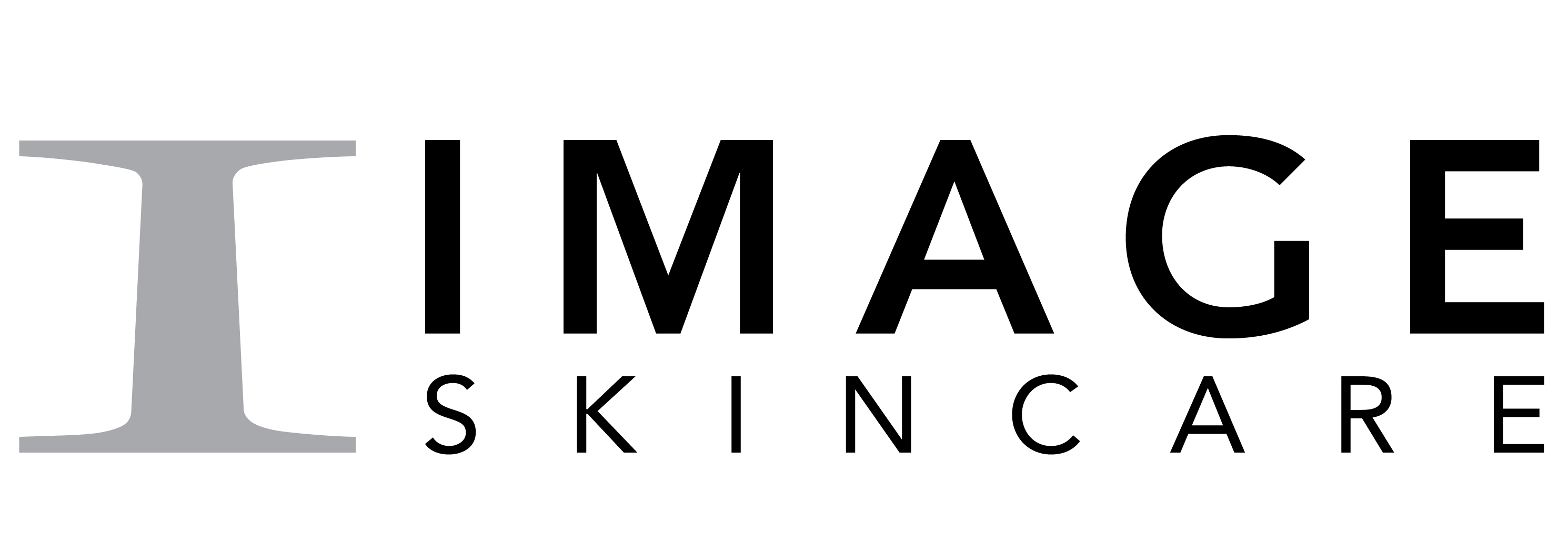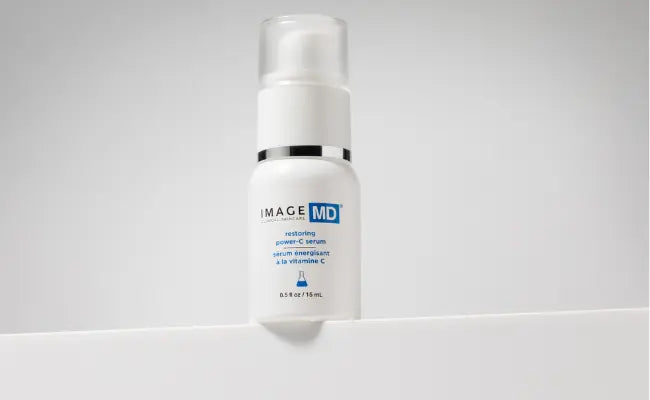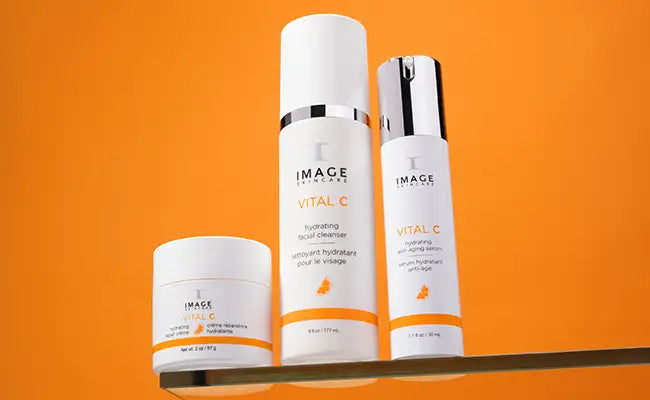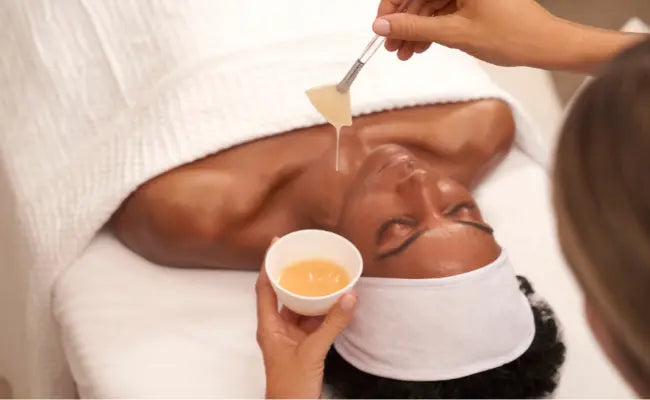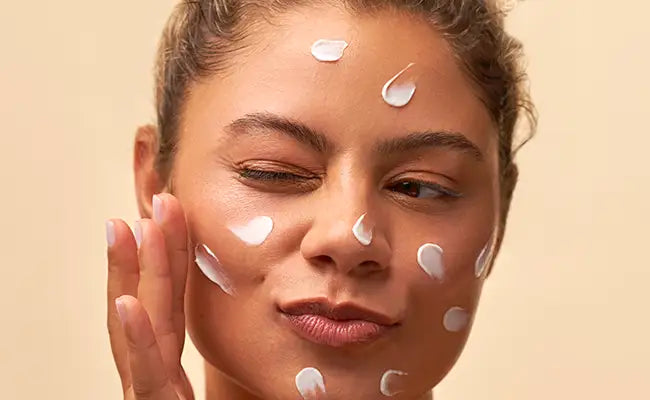Clarifying solutions
Struggling with breakouts? Learn how to care for acne-prone skin with expert-backed tips from IMAGE Skincare. Discover the right products, ingredients, and professional treatments to support clear, healthy skin.
Dealing with acne as an adult can feel incredibly frustrating. While breakouts during your teens might seem normal, persistent acne into your twenties, thirties, and beyond often leaves you wondering what you're doing wrong. The truth is, you're not alone—and more importantly, you're not powerless against it.
Understanding what causes acne-prone skin and implementing the right skincare routine can make all the difference. Whether you're dealing with occasional breakouts or persistent blemishes, the key lies in gentle, consistent care combined with targeted ingredients that address your skin's specific needs.
Understanding Acne-Prone Skin
What is acne-prone skin, exactly? It's skin that's more susceptible to clogged pores, inflammation, and bacterial overgrowth. Several factors contribute to this condition, including excess oil production, dead skin cell buildup, and the presence of acne-causing bacteria.
Your genetics play a significant role in determining your skin type—if your parents dealt with acne, you're more likely to experience it too. Hormonal fluctuations, particularly in women, can trigger breakouts by increasing oil production. Stress, certain medications, and even some skincare products can worsen the problem.
The science behind acne-prone skin involves your sebaceous glands producing excess sebum (oil), which combines with dead skin cells to clog hair follicles. When bacteria multiply in these clogged pores, inflammation occurs, leading to the red, painful lesions we know as acne.
The skin care routine for acne prone skin
The best skincare routine for acne-prone skin focuses on gentle cleansing, targeted treatment, and adequate moisture. Here's what dermatologists recommend as the best thing to do for acne-prone skin:
Morning Routine:
- Start with IMAGE Skincare's Clear Cell Salicylic Gel Cleanser to remove overnight buildup
- Apply a treatment serum with active ingredients
- Follow with a lightweight, non-comedogenic moisturizer
- Never skip broad-spectrum SPF 30 or higher
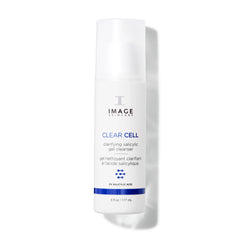
Evening Routine:
- Double cleanse if you wear makeup, starting with an oil-based cleanser
- Use Clear Cell Salicylic Gel Cleanser as your second cleanse
- Apply targeted treatments like the Clear Cell Clarifying Salicylic Masque 2-3 times weekly
- Finish with Vital C Hydrating Anti-Aging Serum for healing and hydration
- This gentle, gel-based foaming cleanser removes makeup and eliminates excess oil while exfoliating dead skin cells. It's formulated to be gentle enough for sensitive skin but effective enough to address adult acne concerns.


The Best Skincare Ingredients for Acne
When selecting which skincare is best for acne-prone skin, focus on these proven ingredients:
Salicylic Acid penetrates deep into pores to dissolve oil and dead skin cells. This beta-hydroxy acid provides gentle exfoliation and helps prevent future breakouts by keeping pores clear.
Benzoyl Peroxide kills acne-causing bacteria but should be used as a spot treatment with caution, as it can be drying and may cause irritation if overused.
Retinol and Retinyl Alternatives accelerate cell turnover, helping to prevent clogged pores and improve skin texture. These ingredients also help fade post-acne marks over time.

Niacinamide reduces inflammation and redness while regulating oil production. This gentle ingredient is particularly effective for sensitive, acne-prone skin.
Glycolic acid gently exfoliates, removing dead cells to reveal a smoother, brighter complexion. It removes dead skin cells to enhance hydration and improve skin clarity.
What to Avoid if You Have Acne-Prone Skin

Certain habits and products can worsen acne-prone skin. Avoid harsh physical scrubs that can irritate and spread bacteria. Skip picking at your skin, as this can lead to scarring and infection. Over-washing your face can strip natural oils, causing your skin to produce even more oil in response.
Heavy, oil-based products can clog pores, while alcohol-based toners can over-dry your skin. Avoid using too many active ingredients at once, as this can cause irritation and compromise your skin barrier.
Professional Treatments That Make a Difference
While a consistent home routine is essential, professional treatments can accelerate your results. Chemical peels, LED light therapy, and professional extractions performed by trained estheticians can address stubborn breakouts and prevent scarring.
Professional treatments also help determine whether your acne is hormonal or bacterial, allowing for more targeted care. An IMAGE Skincare provider can assess your specific skin needs and recommend the most effective treatment protocol.
Lifestyle Tips to Support Clear Skin
What you're lacking if you have acne might not be in your skincare routine—it could be in your lifestyle. Ensure you're getting adequate sleep, managing stress levels, and supporting a balanced diet. Change your pillowcases regularly and clean your phone screen often to reduce bacteria transfer.
Stay hydrated and consider how certain foods affect your skin. While diet doesn't cause acne, some people find that dairy or high-glycemic foods can trigger breakouts.
To check your skin type and understand what the 4 types of skin are (normal, oily, dry, and combination), pay attention to how your skin feels throughout the day. Acne-prone skin often falls into the oily or combination category, though dry skin can also experience breakouts.
Be Patient & Stay Consistent
Achieving clear skin takes time—typically 6-12 weeks to see significant improvement. What reduces acne the most is consistency in your routine rather than constantly switching products. The combination of gentle cleansing, targeted active ingredients, and professional support creates the foundation for long-term skin health.
Remember, neither oily nor dry skin is inherently better—each skin type has its advantages. Oily skin, while prone to acne, tends to age more slowly due to natural oil production that keeps skin supple.
While you might wonder how to get 100% clear skin, the goal should be healthy, balanced skin that's comfortable and confident. With the right approach, you can significantly improve your skin's appearance and prevent future breakouts.
Ready for real results? Explore our Clear Cell collection or book a professional treatment with an IMAGE Skincare provider near you.

